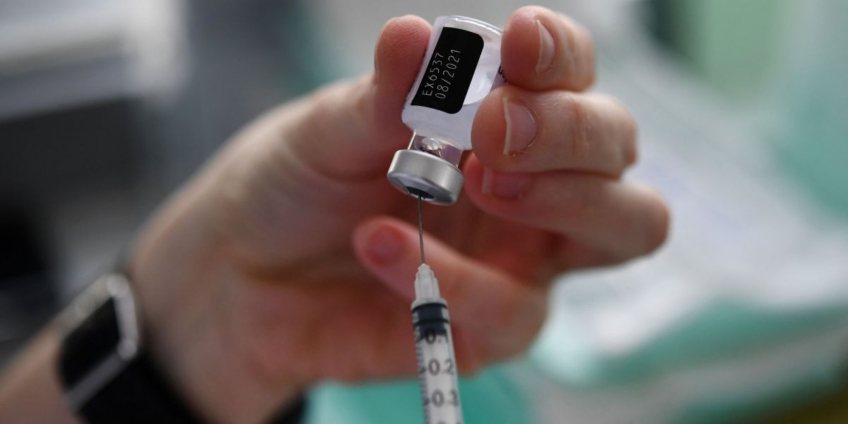Do you have diabetes? Do you even know what it is? And if you do, are you aware of your status as far as the disease is concerned?
The information coming out emphasises the need to know and care about one’s status and how to manage it as Covid-19 is said to cause undue havoc particularly in those with diabetes, should they go on to contract Covid. That is why there is the urgency today, more than ever, for people to test for diabetes.
World diabetes day
Last Sunday as the world marked World Diabetes Day, the World Health Organisation (WHO) drew one’s attention to diabetes, saying it is another pandemic on our hands.
In a Media Release issued by WHO to coincide with the day, the Orgnisation said Africa’s sharp increase in diabetes is clashing with the Covid-19 pandemic and poor access to vaccines. Currently, as according to WHO, only 6.6 percent of the African population is fully vaccinated against Covid-19 compared with about 40 percent globally.
According to Dr. Matshidiso Moeti, WHO Regional Director for Africa, Covid is delivering a clear message: “fighting the diabetes epidemic in Africa is in many ways as critical as the battle against the current pandemic, Covid-19”.
The WHO Africa boss has therefore reminded Africa that “the Covid-19 pandemic will eventually subside but Africa is projected in the coming years to experience the highest increase in diabetes globally.” She cautioned for action to be taken now to prevent new cases, vaccinate people who have the condition and equally important, identify and support the millions of Africans unaware that they are suffering from the silent killer, diabetes.
An estimated 24 million people are reported to be living with diabetes in Africa in 2021, according to the International Diabetes Federation. The continent is expected to experience the highest increase in diabetes globally, with the number of Africans suffering from the disease predicted to rise to 55 million by 2045.
Even more worrying is the fact that in Africa, an estimated 70 percent of people with diabetes do not know they have the disease. That perhaps is the reason why WHO is so concerned and flagging the case of diabetes and cautioning people, particularly Africans, to know their diabetic status and begin to take precautions.
Analysis
A recent WHO analysis has revealed a 10.2 percent case fatality rate in patients with diabetes compared with 2.5 percent for Covid-19 patients overall. The analysis was reached at based on an evaluated data from 13 African countries on underlying conditions or comorbidities in Africans who tested positive for Covid-19.
The analysis further showed that people with diabetes were also twice as high as the fatality rate among patients suffering from the disease was high. Consequently, since the early days of the pandemic, people with diabetes in countries around the world have been prioritised to receive Covid-19 vaccinations.
Unfortunately, Africa has faced challenges in that strategy, according to WHO.
The advice therefore from Dr. Benido Impouma, WHO Regional Office Director, Communicable and Non-communicable Cluster, is for “Health officials in Africa to take advantage of the growing availability of low-cost rapid diagnosis test to routinely test patients in diabetes centres. That will ensure early detection and proper care.
Surprisingly, in Africa, an estimated 70 percent of people with diabetes do not know they have the disease, thus making Africa the only region with the highest number of people who do not know their diagnosis.
With another World Diabetes Day dawned on us, it is time to realise the urgency to know one’s diabetic status. It is a clarion call for all of us to get tested before it gets late.
In Ghana, we are lucky to have diabetes centres at various hospitals and clinics where sufferers are made aware and are supported with education on how to manage the disease and live a good life. There should be a good spread of such centres across the country, well equipped and resourced to create awareness while getting many more people tested. Ignorance is indeed unpardonable and no one should be seen to be caught in it.
At least WHO has given us prior warning that diabetes is on the rise in Africans and it is the pandemic to watch out for. For those living with it, the urgency is to ensure they have their Covid-19 vaccinations and take special care to stay safe.
We live in very uncertain times knowing that Covid and diabetes can clash. We now know that the combination of the two diseases could be disastrous for patients. We can stop diabetes from claiming more lives.
What can you do as an individual, with or without the disease to help the 70 percent who do not know their status? Let us ponder on that.
Latest Stories
-
Ghana and Seychelles strengthen bilateral ties with focus on key sectors
14 mins -
National Elections Security Taskforce meets political party heads ahead of December elections
17 mins -
Samsung’s AI-powered innovations honored by Consumer Technology Association
37 mins -
Fugitive Zambian MP arrested in Zimbabwe – minister
55 mins -
Town council in Canada at standstill over refusal to take King’s oath
1 hour -
Trump picks Pam Bondi as attorney general after Matt Gaetz withdraws
1 hour -
Providing quality seeds to farmers is first step towards achieving food security in Ghana
1 hour -
Thousands of PayPal customers report brief outage
2 hours -
Gary Gensler to leave role as SEC chairman
2 hours -
Contraceptive pills recalled in South Africa after mix-up
2 hours -
Patient sues Algerian author over claims he used her in novel
2 hours -
Kenya’s president cancels major deals with Adani Group
2 hours -
COP29: Africa urged to invest in youth to lead fight against climate change
3 hours -
How Kenya’s evangelical president has fallen out with churches
3 hours -
‘Restoring forests or ravaging Ghana’s green heritage?’ – Coalition questions Akufo-Addo’s COP 29 claims
3 hours

